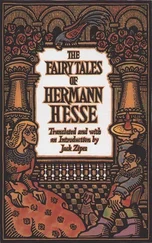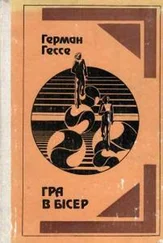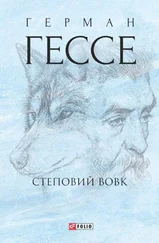It was like a dream, and what pleased the amazed Dasa most was the pretty chance that of all the seekers sent about the country, it had been Pravati who had found him and been the first to salute him. On the edge of the forest he found tents erected. The smell of smoke and roasting game filled the air, Pravati was joyously hailed by her retinue, and a great feast began at once when she presented Dasa, her husband. Among the throng was a man who had been Dasa’s companion in his days as a herdsman. It was he who had led Pravati and the retinue here, with the thought that Dasa might be found at one of the places dear to him from earlier days. The man laughed with pleasure when he recognized Dasa. He ran up to him, ready to embrace him or give him a friendly pat on the back. But his fellow herdsman had become a rajah, and he stopped as if suddenly numbed, then moved slowly and respectfully forward and bowed low. Dasa raised him, clasped him to his breast, affectionately called him by name, and asked how he could reward him. The herdsman wanted a heifer calf, and three were promptly assigned to him from the Rajah’s best stock.
More and more people were introduced to the new prince: officials, huntsmen, court Brahmans. He received their salutations. A meal was served; music of drums, sitars, and nose-flutes sounded; and all the festivity and pomp seemed to Dasa like a dream. He could not fully believe in it. For the present the only reality seemed to him Pravati, his young wife, whom he again held in his arms.
Moving by small daily stages, the procession approached the capital city. Runners had been sent ahead to announce that the young Rajah had been found and was on his way. The city resounded with the boom of gongs and drums as Dasa and his retinue approached. A white-clad parade of Brahmans came forward to meet him, headed by the successor of that Vasudeva who some twenty years before had sent Dasa to the herdsmen. The old man had died only recently. The Brahmans hailed the new Rajah, sang hymns, and led him to the palace, where several great sacrificial fires had been lit. Dasa was shown into his new home. There were more welcomings, homages, benedictions, and speeches. Outside the palace, the city celebrated joyfully until late into the night.
Instructed daily by two Brahmans, Dasa quickly acquired the knowledge necessary to a ruler. He attended sacrifices, pronounced judgments, and practiced the arts of chivalry and war. A Brahman named Gopala taught him politics. He explained the position of his house and its regal privileges, what claims his future sons would have, and who were his enemies. The principal one was Nala’s mother who in the past had robbed Prince Dasa of his rights and had sought to take his life, and who now must certainly hate her son’s murderer. She had fled to the protection of their neighbor, Prince Govinda, and was living in his palace. This Govinda and his house had been dangerous foes from time immemorial. They had made war upon Dasa’s forefathers and claimed certain parts of his territory. On the other hand the Prince of Gaipali, Dasa’s neighbor to the south, had been friendly with his father and had always disliked Rajah Nala. Visiting him, lavishing gifts upon him, and inviting him to the next great hunt belonged among Dasa’s important duties.
The lady Pravati had rapidly adapted to the ways of the nobility. She had the bearing of a princess, and in her beautiful dresses and jewelry she looked splendid, as if she sprang from as fine a lineage as her husband. Year after year they lived together in harmonious love, and their happiness gave them a certain glow, like those whom the gods favor, so that the people adored them. And when, after long waiting, Pravati at last bore him a beautiful boy to whom he gave his father’s name, Ravana, his happiness was complete. All that he possessed, all the land and power, the estates and barns, dairies, cattle, and horses, acquired a fresh importance in his eyes, an added glory and value. His wealth had pleased him because it could be lavished on Pravati, whose loveliness could be enhanced with apparel and jewelry. Now his rich possessions delighted him all the more, and seemed far more important, because he saw in them his son Ravana’s inheritance and future happiness.
Pravati’s chief pleasures lay in festivals, parades, and pomp, luxury in dress and finery, and a large corps of servants. Dasa preferred the joys of his garden. He had ordered rare and precious trees and flowers planted there, and stocked the grounds with parrots and other brilliantly plumaged birds. Feeding and talking with these pets became one of his daily pleasures. In addition, learning attracted him. He proved a grateful pupil of the Brahmans, learned to read and write, memorized many poems and proverbs, and kept a personal scribe who understood the art of making scrolls out of palm leaves. Under the scribe’s skillful hands a modest library grew. The books were kept in a small opulent room with gilded paneling of precious woods, carved with reliefs representing incidents in the lives of the gods. Here he sometimes invited his Brahmans, the foremost scholars and thinkers among the priests, to conduct disputations on sacred subjects: on the creation of the world and on great Vishnu’s Maya, on the holy Vedas, the power of sacrifice, and the still greater power of penance, by virtue of which a mortal man can make the very gods tremble with fear of him. Those Brahmans who had spoken best and advanced the most elegant arguments received fine gifts. As the prize for a successful disputation, some departed leading away a fine cow. On occasion there was something both ridiculous and touching when great scholars, who a few moments before had been reciting maxims from the Vedas along with brilliant exegeses of the same, or who had just proved the depth of their knowledge of all the heavens and seas, stalked off swollen with pride in their awards, or fell to bickering with one another over their prizes.
In general, for all his happiness, his wealth, his garden, and his books, Prince Dasa at times could not help regarding everything that pertained to human life and human nature as both strange and dubious, at once touching and ridiculous, like those same sagacious and vain Brahmans, at once bright and dark, desirable and contemptible. When his gaze dwelt on the lotus flowers in the ponds of his garden, on the lovely iridescent plumage of his peacocks, pheasants, and rhinoceros birds, on the gilded carvings of his palace, these things sometimes seemed to him virtually divine, aglow with the fires of eternal life. But other times, and even at the same times, he sensed in them something unreal, unreliable, questionable, a tendency toward perishability and dissolution, a readiness to relapse into formlessness, into chaos. Just as he himself had been a prince, became a herdsman, descended to the nadir of a murderer and outlaw, and ultimately became a prince once more, moved and guided by unknown powers, with all his tomorrows forever uncertain, so life’s wayward Maya everywhere contained simultaneously nobility and baseness, eternity and death, grandeur and absurdity. Even his beautiful, beloved Pravati had sometimes, for brief moments, appeared to him in a ludicrous light, stripped of her charm; she wore too many bracelets, had too much of pride and triumph in her eyes, and tried too hard to move majestically.
Even dearer to him than his garden and his books was his son Ravana, the fulfillment of his love and his life, the object of his tenderness and solicitude. He was a true prince, a lovely, delicate child, doe-eyed like his mother and inclined to pensiveness and reverie like his father. Often, when Dasa saw the boy standing for a long time in front of one of the ornamental trees in the garden, or sitting on a rug, absorbed in contemplation of a stone, a carved toy, or a feather, eyebrows slightly raised and eyes staring quietly, somewhat absently, it seemed to him that this son was very like himself. Dasa realized fully how intensely he loved him the first time that he had to leave the boy for an indefinite period.
Читать дальше












